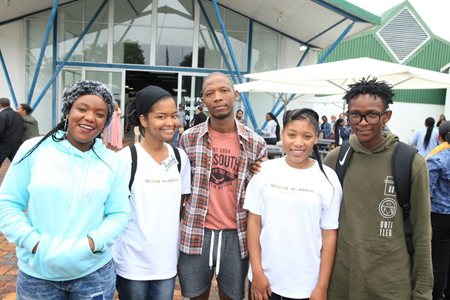
As this is the centenary year of Nelson Mandela’s birth, we are called to reflect on what this name means for Teaching and Learning at this significant moment in history and how our responsibility as ambassadors of the only university in the world that carries this iconic name, will enable us to make a positive impact on our world.
Focusing on local efforts which yield the greatest impact, in this quarter, Teaching and Learning foregrounds admissions and student access alongside several initiatives which seek to orientate and support the needs of the university community. These initiatives extend to five key areas of the academic project, namely; curriculum transformation, multilingualism, collaboration around the humanising pedagogy, student orientation and success, and supporting the academic journey of academic staff within the institution.
Curriculum transformation is integral to Teaching and Learning, as we continue to offer programmes that are relevant and informed by an African context, whilst preparing students for the 21st century in which they will work and live. As part of this journey, curriculum transformation has been on-going institutionally through interdisciplinary, multi-faculty engagements with staff and students around areas related to curriculum renewal. The latest of these engagements in February 2018 led to the development of a set of curriculum statements which seek to enhance the pedagogical encounter and advance the offering of disciplinary expertise, through fundamental considerations which inform our curricular, such as context, diverse knowledge systems and multilingualism. The latter of which will unfold through a set engagements within the faculties around language and multilingual practices in an effort to cultivate linguistic citizenship. Another first expected for the university, will be the launch of the online Humanising Pedagogy Portal which will enable access to, and interrogation of the humanising pedagogy and its application within the academy.
With a special focus on supporting the Teaching and Learning community, this quarter launches a set of special projects to support the needs of students and academic staff. Firstly in supporting student success, the institution launched the How2 @Mandela orientation week from the 25th January – 2nd February, providing a space for peer-led programs which orientate and prepare students for their first year of lectures. Orientation week also included the launch of the Social Consciousness and Sustainable Futures module, developed by students and academics in 2017, as part of the decoloniality project at the institution. Secondly, in supporting the academic journey of academic staff, the university launched a set of colloquia on holistic academic career development, which is to accompany the mentorship program on-going through-out the year.
Overall, Teaching and Learning is focused on these key areas in service of enhancing the academic project, enabling staff and student success and fostering a conducive environment which empowers students to be critical thinkers and co-creators of knowledge, in preparation for their roles as professionals and citizens of the world.